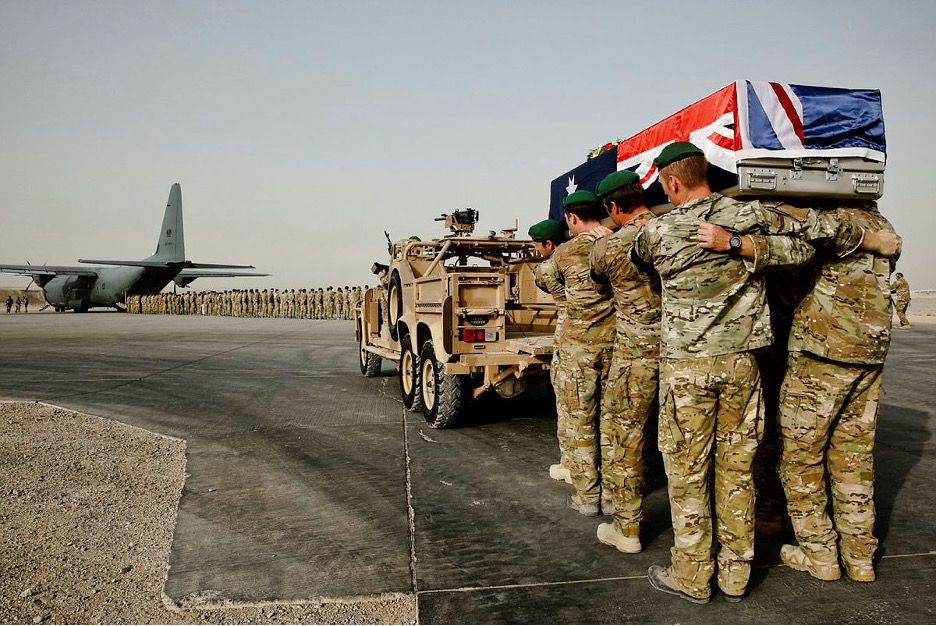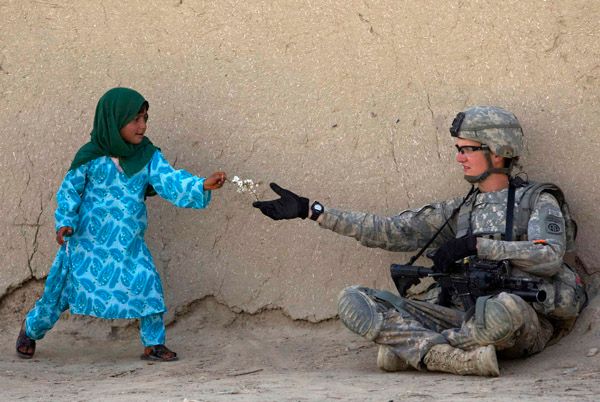
I rarely venture into geopolitics, but what’s unfolding in Afghanistan now is a tragedy. The Taliban are resurgent, and will shortly repossess all the territory won from them after 2001. So much of our own blood and coin spilled for no gain after a twenty year war.
How must the 26,000 men and women of our own defence forces who served there think. Or the families of the 41 soliders who died. Or the many more wounded or traumatised.
And we’ve let down the innocent of Afghanistan – the interpreters and guides who assisted our troops, and for the children and women who are now living in fear.
Ultimately, I believe our presence in Afghanistan was just. I don’t believe that any accusation of aberration from our values invalidated the rectitude of our overall mission. We were there to uphold human rights, not to abuse them. I don’t agree with the complaint that the West had no business being there. The Taliban are brutes. They banned schools, music and even kite-flying in the service of their murderous creed, even as they institutionalised child rape and a hateful, fundamentalist, medieval social order.
Under the Taliban’s twisted Sharia, a woman can be publicly flogged merely for appearing on their balcony, or for wearing embroidery on their sleeve, or for drawing water from the wrong well; a man, for trimming his beard, or owning a phone.
I ask: what does cynicism gain us? If one nation can do anything to bring the rule of law, adherence to international norms, or human dignity to another, surely we should try? Imagine if Australia had taken the view that the struggle against Nazism in Europe was too distant or irrelevant for us to bother with. Opposing evil is a generational moral duty.
Worse, the West’s withdrawal makes the world a more dangerous place. Afghanistan will again become an incubator for Islamic fundamentalism. The bitter fruit of that may lay years in our future. The next Osama Bin Laden sleeps safer now than he did last year.
I think of Nobel Peace Prise winner Malala Yousafzai, raised in the Afghan borderlands. She was shot on a bus for daring merely to attend school. I weep when I think that there are a million Malala’s in Afghanistan and north-west Pakistan whose voices will now be brutally silenced.
The fact that the war became intractable did not mean that the cause was not just. I think too much commentary fails to make that distinction.
It’s not that I don’t accept the finality or necessity of our withdrawal – we couldn’t stay in an open-ended engagement forever. Just that our failure should grieve us all. Our failure to maintain the political will to get the job done. Our failure to the people of Afghanistan.
I’m reminded of Thomas Friedman’s argument in The Lexus and the Olive Tree that likens nations to computers. You can’t boot “DosCapital 6.0” as he put it (modern democratic institutions, independent judiciary, universal franchise, free press) on medieval hardware (a social system based on tribalism and superstition). This explains why Germany and Japan in defeat after WW2 became model international citizens, and Afghanistan, after 20 years and $2 trillion of war and nation building, has not.
Being a reader of history also reminds me that this intractability was foretold a century before the West, or the Soviets got mired there.
A Young Winston Churchill didn’t hold back when he served in Afghanistan in the Malakand campaign in 1897. In the same deployment that had him famously quip “Nothing in life is so exhilarating as to be shot at without result”, he also formed a pointed view of the complexities of the region. He wrote a famous, and lengthy account:
“…Every tribesman has a blood feud with his neighbor. Every man’s hand is against the other, and all against the stranger… the weapons of the nineteenth century in the hands of savages of the Stone Age.”
“Every influence, every motive, that provokes the spirit of murder among men, impels these mountaineers to deeds of treachery and violence… That religion, which above all others was founded and propagated by the sword—the tenets and principles of which are instinct with incentives to slaughter and which in three continents has produced fighting breeds of men—stimulates a wild and merciless fanaticism.”
“The love of plunder, always a characteristic of hill tribes, is fostered by the spectacle of opulence and luxury which, to their eyes, the cities and plains of the south display.”
“And all are held in the grip of miserable superstition, which exposes them to the rapacity and tyranny of a numerous priesthood— the Mullahs, who live free at the expense of the people. More than this, they enjoy a sort of ‘droit du seigneur’ [right to rape a woman on their wedding night] and no man’s wife or daughter is safe from them. Of some of their manners and morals it is impossible to write.”
Like most people fortunate to be born into an age of peace, I am appalled by war, and repulsed by those who glorify it.
But if the might of our armies cannot be employed to lift the faces of people so downtrodden, then what is all our power for?

People are hard on the idea of “Empire” these days. But I remember what Lord Curzon, Governor General and viceroy of India said when he was asked what the noblesse oblige of the West was. He said in a 1905 speech:
“To fight for the right, to abhor the imperfect, the unjust or the mean, to swerve neither to the right nor to the left, to care nothing for flattery or applause or odium or abuse… but to remember that the Almighty has placed your hand on the greatest of his ploughs… to drive the blade a little forward in your time, and to feel that somewhere among these millions you have left a little justice or happiness or prosperity, a sense of manliness or moral dignity, a spring of patriotism, a dawn of intellectual enlightenment, or a stirring of duty, where it did not before exist. That is enough. That is the Englishman’s justification.”
Both we, and the people of Afghanistan will suffer the consequences of our failure to eliminate the Taliban.